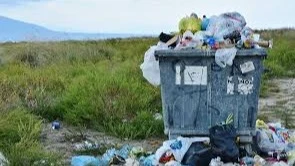The quicker urban waste disposal is offloaded to the recyclers, the better

THERE is at times an impression that reminding the public to certain things could get the situation o change to an extent or make people adopt new ideas.
It is an impression that keeps recurring even if little change comes out of such appeals.
But it definitely has an impact, if only to rekindle the wish to do things differently and then shrugging off that wish because there are no conditions for that.
One such appeal recently heard was in relation to the need for the public to rein in the problem of waste disposal and stop dumping it into drainage conduits as this has become a key factor in recurrent flooding in most urban areas.
It would imply that, in making this appeal, the Tanzania Rural and Urban Roads Agency (Tarura) sees the matter in a regulatory context, for it has seemingly just stopped short of suggesting penalties for the habit.
It is not off the mark to figure out that a roads agency officials thinks of slapping fines on anyone using the wastewater canals as a dump.
The tone of Tarura’s remarks was that the public is to blame for the often deplorable state of drainage conduits in urban areas and elsewhere.
There is plenty of fact in that sort of assertion but the moment one starts asking WHY that is the case, responding that it is just a matter of bad manners might not fit the bill.
Even when there are small bins for dumping waste, such as the ones one sees in in parts of Dar es Salaam, most are filled to the brim and no one comes to collect empty. It ultimately turns into some sort of TARURA-city council hide and seek business.
Taken from that vantage point, it is easier to see how why people dump waste in drainage conduits, with what they do ultimately constituting part of a pattern.
Whether there is a dump bin or not, chances are that waste will fill up all the same with collection seldom made. Wider and faster should be the practice, were there enough appeals for prompt action whenever surroundings turned awful, tarnishing the image of regional and other administrators and the men and women under their command.
In the absence of the vigilance that would induce enhance care and responsibility, the blocking of drainage systems with all manner of garbage will continue unabated before anyone has the interest to do anything about it.
Some of the litter is less visible, and indeed some garbage is placed on roadsides to be collected for safe disposal.
Too bad, all manner of plastic bottles, wrapping stuff and various other ‘throwables’ are routinely and casually dumped into drainage or sewage canals.
Of course, limited to such items would pose few problems if the canals were cleaned regularly, but that’s just not what they are meant for.
And that is exactly why Tarura’s remarks are vital as an appeal to the public, precisely because the agency and city, municipal and other authorities have few plans for extended cleaning up of the canals.
Still, reckless waste disposal stands to blame for the blockage of drainage systems, and hence the flooding of areas where the practice is rampant or chronic, as drainage canals are not meant as garbage bins.
The point is that commerce ought to take the helm in the waste issue, including safely disposing of garbage for onward generation of biogas.
That does not appear all that difficult, though the authorities and agencies best suited to ensure that this is done may have completely different priorities.
Top Headlines
© 2025 IPPMEDIA.COM. ALL RIGHTS RESERVED

















